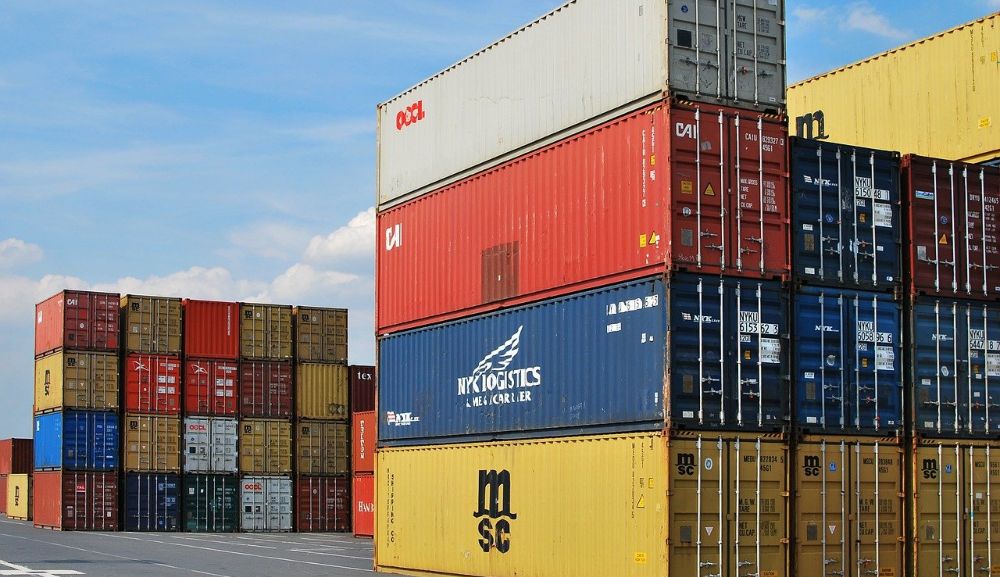
President Biden’s visit last week to Portland and Seattle touched some raw nerves about unregulated free trade, as opposed to progressively regulated fair trade. Left-leaning Portland protested Biden’s embrace of free trade, even though Oregon, like Washington, is very dependent on global trade. Labor unions and environmental groups in Portland “have pushed for years for a trade policy that advances labor rights, human rights and environmental stewardship over the interests of multinational corporations,” Politico reported.
It was also dissonant that Biden chose Portland to make this case when, as a trade gateway, the Port of Portland and Portland International Airport (PDX) pale in comparison to the trade flowing in and out of the Port of Seattle and SeaTac Airport. Perhaps it’s just working-class Joe rooting for the underdog?
Stories covering this event naturally dust off the rich (and sterile) debates over trade policy. Fair traders are often depicted as anti-trade, but this is far too simple a branding.
Seattle famously showcased how divisive this debate can be 23 years ago when the Port of Seattle, led by Commissioner Pat Davis, invited the World Trade Organization (WTO) to hold its Ministerial Conference at the downtown Convention Center. The extreme protests and riots that resulted, later the subject of the movie Battle in Seattle, made headlines worldwide and left the well-meaning Commissioner Davis and Mayor Paul Schell perplexed in the extreme.
First elected Port Commissioner in 1984, Pat Davis ran on a community-activist platform, primarily concerned with Port activity that threatened the peace of nearby residential neighborhoods where she lived. That issue quickly faded as Davis learned the job and sent her down a globalization path. By the time of the WTO protests, she was firmly established as a pro-business political champion. Davis suffered from a persona that could be impatient and condescending with what she perceived as ill-conceived arguments. She argued that free trade was a net gain for all sectors of the economy and that for trade-dependent Washington it was an essential element in our economic health — period.
Likely vexing was the significant role the International Longshore and Warehouse Union (ILWU) played in the protest. Here were workers directly benefiting from free trade biting the hand that generously fed them. To Davis, opposing free trade likely struck her as stylish “progressive” posturing. She would have felt that factoring in worker rights and environmental stewardship were priorities to work on AFTER barriers were dropped, not before. The “before or after” dynamic is the dueling ground where progressive fair traders and free market free traders face off.
Since the WTO protests, the progressive critique of market-based free trade has only intensified in deep-blue cities. That has put labor-backed Democratic free-trade stalwarts like Sen. Maria Cantwell in a contentious dynamic with fair-trade activists. Meanwhile at the Port of Seattle, the formerly business-friendly Commission has been comprehensively replaced by progressives. Current Commissioners Ryan Calkins and Sam Cho are steeped in small business mojo, but they are also thoughtful social progressives who reflect the complicated relationship this region has with globalism.
Along with their fellow commissioners — one an environmental activist, one an immigrant activist, and one the daughter of a labor activist — Calkins and Cho will be pressured to support the protectionist China competition bill floating around in Congress. Finding the means to elevate the debate beyond this simplistic polarization will be a constant challenge for those trying to find the regional political center.
Discover more from Post Alley
Subscribe to get the latest posts sent to your email.

Important article and subject.
If the cities business interests are governed by activists, the businesses will eventually diminish in value to the city, and the activist (who seem to be non-landowners) will find a city with less money to apply to their programs.
In the ideal world you have a mix, which applies politically as well. We are going to miss reasonable politicians like Peter ………..
I’m confused. I read the linked article about “the protectionist China competition bill”, and what I see is an effort to boost US production, particularly of semiconductors, and boost science education and research.
Plus, this being congress, a good helping of politics – condemnations, task forces etc. – with little or no real consequence. And some politics with consequences, but not to China. I fail to see anything in the article about any protections, in this supposedly “protectionist” bill?